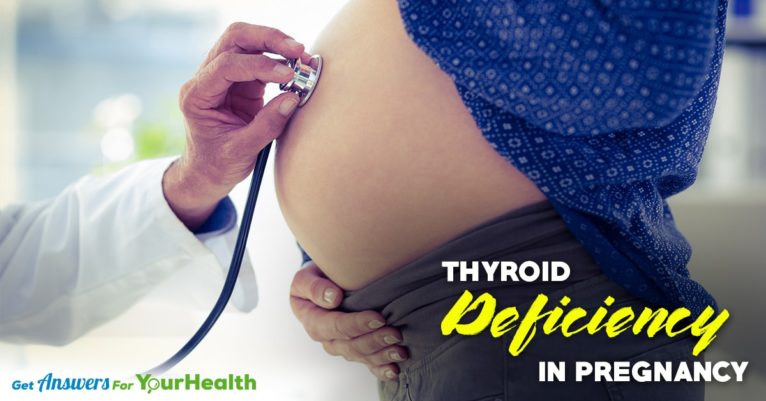1) Grab a FREE copy (Value $14.95) of one of my books Thyroid Symptom Overload
Just pay shipping $7.95 for any US orders. Or, if you want to pay full price plus shipping, order from Amazon :)
2) Take our Thyroid Quiz today and find out what "Thyroid Type" you have
This quiz will help you quickly discover where your symptoms are stemming from.
3) Join Our Thyroid Advocate Membership Site - Natural Thyroid Academy
FREE for a limited time. No credit card required.
4) Work with me and my team privately
Schedule your FREE 15 minute phone consultation and we can find out the best way to help you specifically.
Pregnancy is a joyful period, but it can cause an increase in symptoms if you have thyroid problems. For example, hypothyroidism, hyperthyroidism, postpartum thyroiditis which may occur after or during pregnancy.
Hypothyroidism is one of the leading causes that results in difficulty to maintain and achieve pregnancy. This can also be a cause of infertility. Thyroid deficiency has an adverse impact on the reproduction system and more common in women. The first essential step for women planning to get pregnant is to have their thyroid evaluated by their medical doctor or specialist such as OB/GYN.
What Is The Thyroid Gland?
It is a small, butterfly-shaped gland which produces thyroxine and triiodothyronine which are the active forms of thyroid hormones.
Hypothyroidism:
Hypothyroidism is a condition where thyroid hormones are deficient and do not meet the body’s requirements. It may occur due to various reasons which include:
- Problems with the thyroid gland itself where the organ stops producing T4 hormone.
- Iodine deficiency which may result in hypothyroidism.
- Conditions where T4 is produced in enough quantity, but cannot be converted to T3.
Signs Of Hypothyroidism:
The following are the signs of hypothyroidism:
- Depression
- Irritability
- Memory loss and mind fog
- Fatigue and weakness
- Digestive issues and weight gain
- Dry hair and skin with hair loss
- Shortness of breath
- Eczema
- Cold intolerance
- Slow pulse
- Muscle cramps
- Goiter
- Difficulty in carrying and conceiving pregnancy
- Reduced libido
- Abnormal menstrual cycle
Diagnostic Tests:
The following are the diagnostic tests often performed by your medical doctor for hypothyroidism:
- T4, T3 and TSH levels in the blood.
- Testing guideline for T4 and TSH levels in pregnant ladies:
- For 1st trimester: TSH 0.1-2.5 mIU/L
- For 2nd trimester: TSH 0.2-3 mIU/L
- For 3rd trimester: TSH 0.4-4.0 mIU/L
Complications Of Hypothyroidism:
The following are the complications of hypothyroidism:
- Birth defects
- Goiter (An enlargement of the thyroid gland because of the exertion in trying to produce adequate hormones).
- Heart problems
- Mental health issues
- Infertility
- Myxedema
Hypothyroidism During Pregnancy:
The levels of hypothyroidism during pregnancy are:
- TSH levels above 2.5mIU/L and decreased amounts of free T4
- TSH levels greater than 10mIU/L regardless of free T4 levels
SUBCLINICAL HYPOTHYROIDISM IN GESTATION:
- TSH levels between 2.5-10.5 mIU/L and normal amounts of the free T4 present.
Hashimoto’s Thyroiditis Or Hypothyroidism:
This is an autoimmune condition, that can result in hypothyroidism during pregnancy. This condition is safe and easy to treat by medication prescribed by your medical doctor known as thyroid hormone replacement therapy.
Thyroid hormone is an important hormone for the healthy growth and development of your baby’s nervous system and brain. Doctors advise individuals to take frequent blood tests to identify the normal thyroid levels. However, if pregnant women develop hypothyroidism, it will often continue even after childbirth. This condition with the production of autoantibodies may result in increased rate of preterm birth, miscarriage and neurodevelopment issues. Screening should be performed after every 4-6 weeks in such individuals.
Myxedema Coma:
It is a type of hypothyroidism which is very dangerous for pregnant women. It is a lethal condition where the levels of thyroid hormones are deficient with low blood sugar and blood pressure levels. There is a decrease in potential unresponsiveness and breathing difficulty.
The symptoms of myxedema coma include drowsiness, hypothermia, and confusion. The complications of myxedema coma can include infertility and miscarriage.
What Are The Effects Of Pregnancy On Thyroid?
During pregnancy, there are constant changes in your body. Size of your belly increases with a change in the hormonal balance. Rarely, your thyroid might even go haywire. Due to the drastic changes, pregnancy acts as a triggering factor for the thyroid gland. There is an increased incidence of thyroid conditions during pregnancy because of the genetic issues, pre-existing hypothyroidism, or due to the thyroid damage that might occur after thyroid removal. During pregnancy, the growth and development of the fetus are controlled by the maternal thyroid hormones.
How To Tackle Thyroid Problems Which May Occur After Pregnancy:
Make sure you visit your medical doctors in any thyroid condition to make sure you have healthy thyroid levels. Keep yourself and your baby healthy. Visit a child specialist and take your child’s thyroid tests regularly for at least first few months.
Impact Of Reproductive Hormones And Medications On Thyroid Gland:
Both the thyroid gland and reproductive hormones have effects on each other. Increased levels of Estrogen and HCG (human chronic gonadotropin) affect the thyroid hormones which might reduce its level in the blood. It occurs because of excess estrogen which leads to increase TBG a type of protein which helps to transport and bind T4 and T3.
The symptoms associated with hypothyroidism may get worse under the presence of Estrogen. Many prescription drugs also affect the thyroid functions such as Beta blockers, Steroids, Cholesterol-lowering drugs, Barbiturates and few seizure medications.
Hypothyroidism, Pregnancy, And Fertility:
Conception is difficult in women suffering from hypothyroidism because it is associated with ovarian dysfunction. The hormonal disruption occurs in hypothyroid patients, i.e., decreased levels of LSH and FSH. These hormones are required for the maturation of egg follicles, along with the production of progesterone and estrogen in ovaries. Hypothyroidism is also associated with ovarian cysts.
10-15% of pregnant ladies encounter hypothyroidism. During pregnancy, the thyroid hormone level increases to 20-50% for the fetal and placental development.
However, some women may not be able to produce enough thyroid hormones due to subclinical or full-blown hypothyroidism. Hypothyroidism during pregnancy may result in preterm birth, miscarriage, low birth weight as well as developmental issues that may occur post-delivery.
BEFORE PREGNANCY: If hypothyroidism is left untreated, it might result in the difficulty to conceive. Most medical doctors will probably recommend you take levothyroxine, and once your thyroid hormone levels are normal, you can plan to conceive. Please talk to your OB/GYN.
DURING PREGNANCY: If during pregnancy, you find out that you have hypothyroidism then speak to your doctor and see what he or she recommends.
AFTER CHILDBIRTH: Return to the standard dose of Levothyroxine. Ensure to continue your blood tests in all phases of pregnancy and consult with your medical doctor.
What Are The Effects Of Hypothyroidism On The Baby And Mother?
Pregnant women may develop congestive heart failure, miscarriage, premature birth, low birth weight, anemia and preeclampsia (high-rise in BP).
In babies, it may affect the nervous system and brain development.
Pregnancy And Conception:
As there is a link between pregnancy and hypothyroidism, support your thyroid gland, adrenals, and healthy immune system before you try to conceive.
The medical treatment option typically recommended by your doctor is Levothyroxine. However, please consult with your endocrinologist to get the specifics for yourself.
Hypothyroidism and nutrition: Consume anti-inflammatory foods such as vegetables and fruits, small amounts of fats, proteins, and grains. It is important to get checked out and see if you have any food sensitivities as well.
The vital nutrients necessary for thyroid health are:
1) IODINE: It is essential for fetal growth and postpartum development. Iodine requirement from dietary sources is high during pregnancy. Pregnant women who have iodine deficiency ranges between 50-150ml/L will have an increased incidence of neuro developmental issues in their children.
Iodine requirement in pregnant women during lactation: 220-290 microgram. Iodine requirement for non-pregnant women: 150 micrograms.
Food sources: seafood, dairy products, strawberries.
2) SELENIUM: It is important for maintaining the function of enzymes involved with thyroid. It helps in diminishing thyroid antibodies. Low levels of selenium during pregnancy results in postpartum thyroid dysfunction.
Selenium requirements in pregnancy: 60 micrograms.
Food sources: fish, lean meats, eggs, cheese, alliums and green vegetables.
3) ZINC: It influences the functions of the thyroid gland.
Zinc requirements in pregnancy: 11mg
Food sources: carrots, whole grains, pumpkin seeds, lean meat, cheese, and beets.
4) L-TYROSINE: It is used for the synthesis of thyroid hormones. Choose a supplement which contains L-Tyrosine.
Food sources: fish, eggs, game meats, organic poultry, sesame and pumpkin seeds.
5) OMEGA-3 ESSENTIAL FATTY ACIDS: It helps to decrease the inflammation and supports the immune system function. Infants who are born to women with insufficient amounts of omega 3 are at a higher risk of developing vision and nerve problems.
Fatty acids requirement: 300 mg daily during pregnancy.
6) VITAMIN A, C, and E: These are the powerful antioxidants with anti-inflammatory and immune supporting properties.
Recommended dose: Vitamin A: 770 microgram
Vitamin E: 15mg
Vitamin C:85mg
What To Avoid During Pregnancy?
Avoid following habits and foods during pregnancy:
- Overeating
- Wheat, gluten
- Excess salt
- Inflammatory foods
- Soy
- Raw cruciferous vegetables
- Flaxseeds
Herbal Support:
Consult your medical doctor before taking the following herbal supplements:
- Asian Ginseng
- Eleuthero
- Ashwagandha
- Schisandra
- Rhodiola
- Licorice
- Maca and others.
How Can You Avoid The Consequences Of Hypothyroidism During Pregnancy?
The specialists have recommended a list of things which you need to avoid during pregnancy:
-Women who are planning to get pregnant but have hypothyroidism should get their complete screening done by their medical doctor.
-Women who have increased amounts of thyroid antibodies, family history, or an enlarged thyroid gland should have their thyroid evaluated.
-Women who have border line thyroid hormones along with positive antibodies should be be under close supervision from their doctor as this indicates the immune system is involved.
-Women who have high antibody levels should be recommended selenium supplements before conception.
-Women should be checked for their thyroid hormone levels before pregnancy if they are taking thyroid hormone replacement therapy.
-The dose along with the thyroid hormone levels should constantly be monitored during pregnancy by your medical doctor.
-Thyroid hormone supplements should be closely monitored during and after pregnancy by monitoring the levels of TSH in the blood.
Conclusion:
It is essential for women who are planning to conceive to have proper testing for thyroid hormones. Request your medical doctor to diagnose any imbalances in your thyroid hormones. Support your total body wellness and thyroid health by consuming the essential nutrients, foods, and herbs which can have positive impact on your thyroid health, along with the entire endocrine system. Work in close association with your medical doctor and have frequent visits to ensure that your thyroid hormone levels are in normal range. This will allow you to sustain the pregnancy.
References:
https://www.endocrineweb.com/conditions/thyroid/pregnancy-your-thyroid?page=5
https://www.babycentre.co.uk/x552788/how-does-an-underactive-thyroid-affect-conceiving-and-pregnancy
http://health.howstuffworks.com/pregnancy-and-parenting/pregnancy/conception/thyroid-problems-make-it-harder-get-pregnant3.htm
http://m.newkidscenter.com/Hypothyroidism-and-Pregnancy.html
http://hypothyroidmom.com/infertility-miscarriage-and-subclinical-hypothyroidism/
http://www.nhs.uk/Conditions/Thyroid-under-active/Pages/Complications.aspx
http://hypothyroidmom.com/what-every-pregnant-woman-needs-to-know-about-hypothyroidism/
https://www.endocrineweb.com/amp/16
http://www.hopkinsmedicine.org/healthlibrary/conditions/endocrinology/hypothyroidism_and_pregnancy_85,P00426/
http://www.emedicinehealth.com/script/main/mobileart-emh.asp?articlekey=58776#thyroid_problems_overview
http://www.chop.edu/pages/thyroid-disorders-and-pregnancy
https://www.endocrineweb.com/amp/1265








